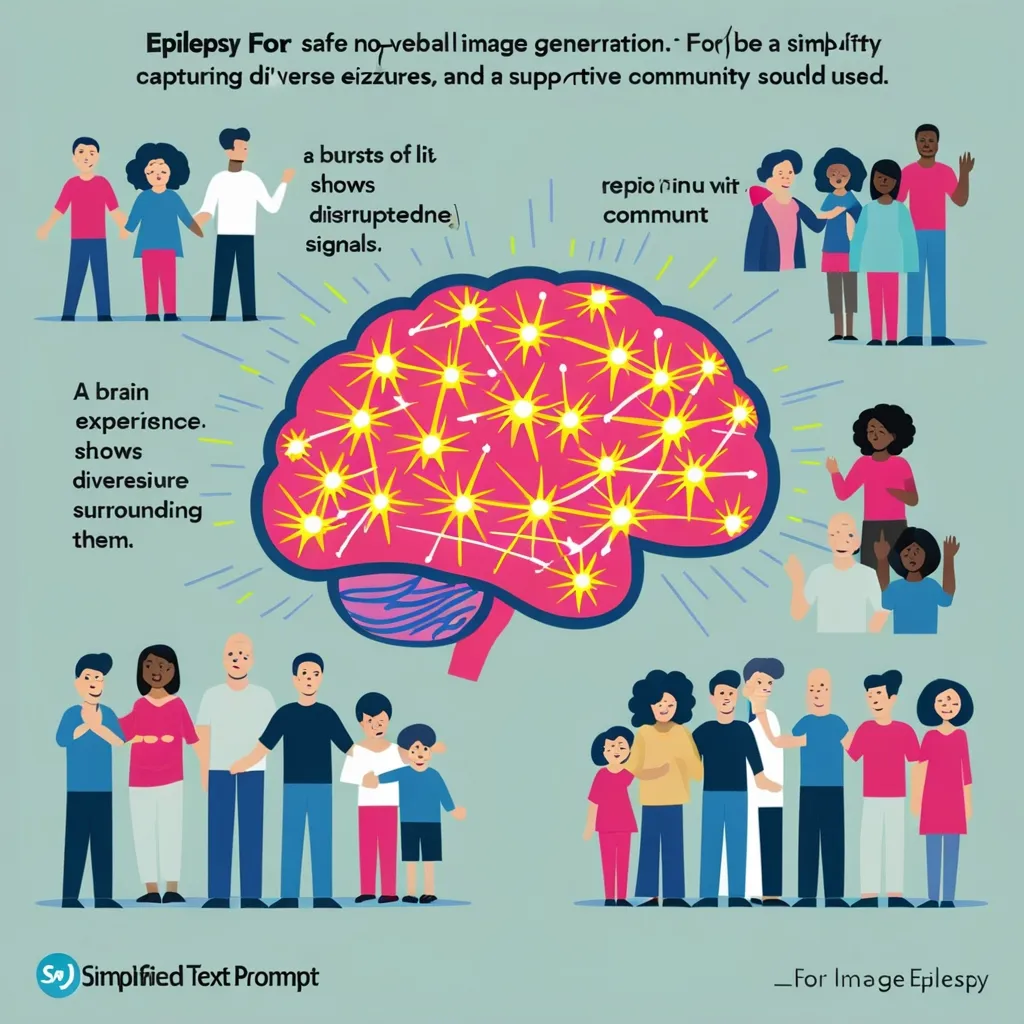Epilepsy is one of those things that sounds scarier than it really is once you understand it. It’s this neurological condition that messes with the brain’s electrical activity, causing repeated seizures. If you didn’t know, millions of people around the world are dealing with this every day. And, honestly, it can be a real hassle in daily life.
The Basics of Epilepsy
Imagine your brain as this super sophisticated control center, sending out tiny electrical signals that keep everything running smoothly. Usually, these signals are well-behaved, but in people with epilepsy, they get out of sync. This imbalance can lead to these intense, synchronized bursts of electrical energy. When this happens, it can mess with how you move, feel, or even just zone out for a bit.
Breaking Down Seizures
Now, the main thing people think of when they hear “epilepsy” is seizures. Seizures come in lots of shapes and sizes, but they generally fall into two categories: generalized and focal.
Generalized seizures are like the big fireworks show; they light up the whole brain and often cause things like convulsions or passing out. On the flip side, focal seizures are more localized. They might only affect one part of the brain, making just an arm or a leg twitch, or causing strange sensations or feelings.
Some people even get a kind of heads-up that a seizure’s on its way. It’s called an aura, and might involve weird feelings, visual quirks, or even emotional shifts.
Why Do Seizures Happen?
Epilepsy can develop for tons of reasons. Genetics might play a part, but other factors like brain injuries, infections, and birth complications also contribute. It’s not always clear-cut.
There are also triggers to keep an eye out for. Things like sleep deprivation, stress, flashing lights, certain meds, and even some recreational substances can set off seizures. Knowing your triggers can help you dodge some episodes.
Figuring Out If It’s Epilepsy
Getting to the bottom of an epilepsy diagnosis usually involves multiple steps. Doctors will look at your medical history and might run some tests. An EEG (electroencephalogram) is a big one; it records your brain’s electrical activity and can show unusual patterns common in epilepsy.
Other imaging tests like CT scans, MRIs, or PET scans might be used to peek inside the brain and see if there’s anything physically wrong causing the seizures.
Sometimes they’ll go all out and do inpatient video-EEG monitoring. It sounds intense, but it’s just a fancy way to study your brain during a seizure in real-time. It helps pinpoint exactly where the crazy electrical stuff is happening in your brain.
Treatment Routes
When it comes to treating epilepsy, medication is the main player. There are tons of anti-seizure drugs out there, and most people find relief with some mix of these meds. But not everyone is that lucky.
For those who don’t get results from medication, surgical options exist. This might mean removing the part of the brain causing the problem or using devices to tweak brain activity.
Lifestyle tweaks are super important too. Things like getting enough sleep, managing stress, and staying away from known triggers can make a big difference.
Regular check-ins with your doctor are key. They can adjust your treatment as needed to keep things under control.
Daily Life with Epilepsy
Living with epilepsy isn’t just about managing seizures. It’s about dealing with the fears and challenges that come with it. Seizures can cause injuries, especially if they hit you out of the blue during risky activities like driving.
The unpredictability of seizures often leads to anxiety. It’s worrying to think about having a seizure in public or not knowing when the next one will strike.
Support systems are crucial. Family, friends, and mental health professionals can be a huge help in navigating both the physical and emotional rollercoaster of epilepsy.
Beat the Triggers
Tracking and managing triggers can really help keep seizures at bay. Keeping a seizure diary is a smart move. Write down when seizures happen and try to figure out what might have caused them. Over time, you’ll likely spot patterns that can help you avoid known troublemakers, like certain types of lights or not getting enough sleep.
High-Tech Help
Advances in diagnostic technology are game-changers for epilepsy management. Video-EEG monitoring offers detailed insights into seizures, revealing the exact spots in the brain that are acting up. This is crucial for more targeted treatments, whether they’re surgical or medicinal.
Neuropsychological tests can evaluate how seizures might affect brain functions. Understanding these nuances can help tailor a treatment plan that supports the whole person, not just the condition.
Wrap-Up
Epilepsy is definitely complex, but with the right knowledge and tools, it’s manageable. Understanding the causes, recognizing the symptoms, and knowing the treatment options can make a huge difference.
It’s all about a combined approach: taking meds, making lifestyle changes, and leaning on advanced diagnostics when needed. With the right support system, even those with epilepsy can live vibrant, active lives.






